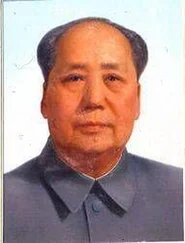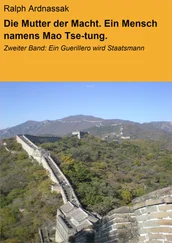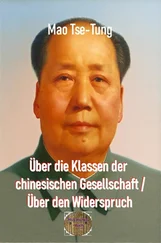Tse-tung Mao - The Little Red Book
Здесь есть возможность читать онлайн «Tse-tung Mao - The Little Red Book» весь текст электронной книги совершенно бесплатно (целиком полную версию без сокращений). В некоторых случаях можно слушать аудио, скачать через торрент в формате fb2 и присутствует краткое содержание. Жанр: Политика, на английском языке. Описание произведения, (предисловие) а так же отзывы посетителей доступны на портале библиотеки ЛибКат.
- Название:The Little Red Book
- Автор:
- Жанр:
- Год:неизвестен
- ISBN:нет данных
- Рейтинг книги:5 / 5. Голосов: 1
-
Избранное:Добавить в избранное
- Отзывы:
-
Ваша оценка:
- 100
- 1
- 2
- 3
- 4
- 5
The Little Red Book: краткое содержание, описание и аннотация
Предлагаем к чтению аннотацию, описание, краткое содержание или предисловие (зависит от того, что написал сам автор книги «The Little Red Book»). Если вы не нашли необходимую информацию о книге — напишите в комментариях, мы постараемся отыскать её.
The Little Red Book — читать онлайн бесплатно полную книгу (весь текст) целиком
Ниже представлен текст книги, разбитый по страницам. Система сохранения места последней прочитанной страницы, позволяет с удобством читать онлайн бесплатно книгу «The Little Red Book», без необходимости каждый раз заново искать на чём Вы остановились. Поставьте закладку, и сможете в любой момент перейти на страницу, на которой закончили чтение.
Интервал:
Закладка:
Ibid ., p. 201.*
We Communists are like seeds and the people are like the soil. Wherever we go, we must unite with the people, take root and blossom among them.
"On the Chungking Negotiations" (October 17, 1945), Selected Works, Vol. IV, p. 58.
We Communists must be able to integrate ourselves with the masses in all things. If our Party members spend their whole lives sitting indoors and never go out to face the world and brave the storm, what good will they be to the Chinese people? None at all, and we do not need such people as Party members. We Communists ought to face the world and brave the storm the great world of mass struggle and the mighty storm of mass struggle.
"Get Organized!" (November 29, 1943), Selected Works, Vol. III, p. 158.
The exemplary vanguard role of the Communists is of vital importance. Communists in the Eighth Route and New Fourth Armies should set an example in fighting bravely, carrying out orders, observing discipline, doing political work and fostering internal unity and solidarity.
"The Role of the Chinese Communist Party in the National War" (October 1938), Selected Works, Vol. II, p. 197.*
A Communist must never be opinionated or domineering, thinking that he is good in everything while others are good in nothing; he must never shut himself up in his little room, or brag and boast and lord it over others.
"Speech at the Assembly of Representatives of the Shensi-Kansu-Ningsia Border Region" (November 21, 1941), Selected Works, Vol. III, p. 33.*
Communists must listen attentively to the views of people outside the Party and let them have their say. If what they say is right, we ought to welcome it, and we should learn from their strong points; if it is wrong, we should let them finish what they are saying and then patiently explain things to them.
Ibid .
The attitude of Communists towards any person who has made mistakes in his work should be one of persuasion in order to help him change and start afresh and not one of exclusion, unless he is incorrigible.
"The Role of the Chinese Communist Party in the National War" (October 1938), Selected Works, Vol. II, p. 198.
As for people who are politically backward, Communists should not slight or despise them, but should befriend them, unite with them, convince them and encourage them to go forward.
Ibid.
29. CADRES
In order to guarantee that our Party and country do not change their colour, we must not only have a correct line and correct policies but must train and bring up millions of successors who will carry on the cause of proletarian revolution.
In the final analysis, the question of training successors for the revolutionary cause of the proletariat is one of whether or not there will be people who can carry on the Marxist-Leninist revolutionary cause started by the older generation of proletarian revolutionaries, whether or not the leadership of our Party and state will remain in the hands of proletarian revolutionaries, whether or not our descendants will continue to march along the correct road laid down by Marxism-Leninism, or, in other words, whether or not we can successfully prevent the emergence of Khrushchov's revisionism in China. In short, it is an extremely important question, a matter of life and death for our Party and our country. It is a question of fundamental importance to the proletarian revolutionary cause for a hundred, a thousand, nay ten thousand years. Basing themselves on the changes in the Soviet Union, the imperialist prophets are pinning their hopes of "peaceful evolution" on the third or fourth generation of the Chinese Party. We must shatter these imperialist prophecies. From our highest organizations down to the grass-roots, we must everywhere give constant attention to the training and upbringing of successors to the revolutionary cause.
What are the requirements for worthy successors to the revolutionary cause of the proletariat?
They must be genuine Marxist-Leninists and not revisionists like Khrushchov wearing the cloak of Marxism-Leninism.
They must be revolutionaries who wholeheartedly serve the overwhelming majority of the people of China and the whole world, and must not be like Khrushchov who serves both the interests of the handful of members of the privileged bourgeois stratum in his own country and those of foreign imperialism and reaction.
They must be proletarian statesmen capable of uniting and working together with the overwhelming majority. Not only must they unite with those who agree with them, they must also be good at uniting with those who disagree and even with those who formerly opposed them and have since been proved wrong in practice. But they must especially watch out for careerists and conspirators like Khrushchov and prevent such bad elements from usurping the leadership of the Party and the state at any level.
They must be models in applying the Party's democratic centralism, must master the method of leadership based on the principle of "from the masses, to the masses", and must cultivate a democratic style and be good at listening to the masses. They must not be despotic like Khrushchov and violate the Party's democratic centralism, make surprise attacks on comrades or act arbitrarily and dictatorially.
They must be modest and prudent and guard against arrogance and impetuosity; they must be imbued with the spirit of selfcriticism and have the courage to correct mistakes and shortcomings in their work. They must never cover up their errors like Khrushchov, and claim all the credit for themselves and shift all the blame on others.
Successors to the revolutionary cause of the proletariat come forward in mass struggles and are tempered in the great storms of revolution. It is essential to test and judge cadres and choose and train successors in the long course of mass struggle.
Quoted in On Khrushchov's Phoney Communism and Its Histotical Lessons for the World (July 14,1964), pp. 72-74.*
Our Party organizations must be extended all over the country and we must purposefully train tens of thousands of cadres and hundreds of first-rate mass leaders. They must be cadres and leaders versed in Marxism-Leninism, politically far-sighted, competent in work, full of the spirit of selfsacrifice, capable of tackling problems on their own, steadfast in the midst of difficulties and loyal and devoted in serving the nation, the class and the Party. It is on these cadres and leaders that the Party relies for its links with the membership and the masses, and it is by relying on their firm leadership of the masses that the Party can succeed in defeating the enemy. Such cadres and leaders must be free from selfishness, from individualistic heroism, ostentation, sloth, passivity, and arrogant sectarianism, and they must be selfless national and class heroes; such are the qualities and the style of work demanded of the members, cadres and leaders of our Party.
"Win the Masses in Their Millions for the Anti-Japanese National United Front" (May 7, 1937), Selected Works, Vol. I, p. 291.*
Cadres are a decisive factor, once the political line is determined. Therefore, it is our hghting task to train large numbers of new cadres in a planned way.
"The Role of the Chinese Communist Party in the National War" (October 1938), Selected Works, Vol. II, p. 202.
The criterion the Communist Party should apply in its cadres policy is whether or not a cadre is resolute in carrying out the Party line, keeps to Party discipline, has close ties with the masses, has the ability to hnd his bearings independently, and is active, hardworking and unselfish. This is what "appointing people on their merit" means.
Ibid.
It is necessary to maintain the system of cadre participation in collective productive labour. The cadrcs of our Party and state are ordinary workers and not overlords sitting on the backs of the people. By taking part in collective productive labour, the cadres maintain extensive, constant and close ties with the working people. This is a major measure of fundamental importance for a socialist system; it helps to overcome bureaucracy and to prevent revisionism and dogmatism.
Читать дальшеИнтервал:
Закладка:
Похожие книги на «The Little Red Book»
Представляем Вашему вниманию похожие книги на «The Little Red Book» списком для выбора. Мы отобрали схожую по названию и смыслу литературу в надежде предоставить читателям больше вариантов отыскать новые, интересные, ещё непрочитанные произведения.
Обсуждение, отзывы о книге «The Little Red Book» и просто собственные мнения читателей. Оставьте ваши комментарии, напишите, что Вы думаете о произведении, его смысле или главных героях. Укажите что конкретно понравилось, а что нет, и почему Вы так считаете.











